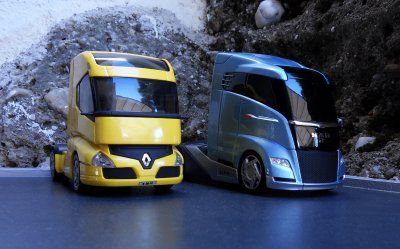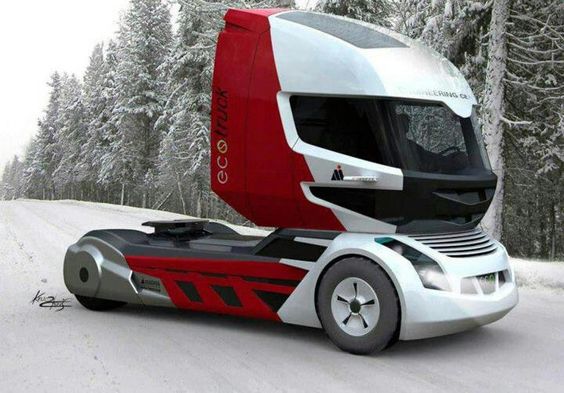

Today, the reduction of greenhouse gas emissions and the gas pollutants has become a necessity. We talk a lot about making autonomous vehicles as an alternative to the ones we use. With regard to the road transport of goods, 100% autonomous trucks should progressively enter the European market by 2030.
Optimists see these trucks as a great way to secure and streamline the transportation while reducing the costs. In a more futuristic vision, the 100% autonomous truck will undoubtedly make it possible to connect the various distribution centers and the connected platforms with the “smart-cities”, and inevitably redrawing our European territories.
A real revolution in 10 years
Like the automotive sector, the transportation of goods is undergoing a revolution. The transformations of our businesses are already observable. We are witnessing the gradual reduction of intermediaries, the fluidification of exchanges, and the arrival of e-brokers platforms. The use of software’s and other technological wonders in order to optimize the supply chain is becoming more and more systematic, thus generating more time and economic efficiency.
According to a study by the Institute Strategy &, the digitalization phenomenon is expected to ultimately reduce costs related to the logistics and the maintenance of trucks.
Estimates for 2030 lowered the reduction in fleet costs up to 30%.
A response to the environmental challenges?
The development of autonomous trucks echoes the issues related to the protection of the environment. Given the current climate situation and the poor image of the sector in this area, an initiative taken by the players is more than ever necessary. The currently used hybrid trucks wanted to restore the image of a sector which is seen as too polluting and too greedy for energy. Yet these solutions have been criticized for their lack of performance. We can see that the major manufacturers are not in shortage of projects. In 2016, the Swedish manufacturer Scania has officially inaugurated the opening of the first electric highway to ride “in green”. Last year was marked by the success of the first experience of cross-border platooning (European Truck Platooning Challenge).
Six European manufacturers have put in circulation heavyweight convoys of semi-automated trucks from different European cities with the aim of rallying in front of the port of Rotterdam on April 6th. And it was successful.
Towards a connectivity of the road transports?
Cross-border platooning has demonstrated its performance in terms of fuel savings, in CO2 emissions, road safety and traffic flow. With connectivity, it is assumed that externalities will be drastically reduced (accidents, pollution, noises, and traffic jams,). In addition, a large majority of accidents involving heavy vehicles are due to human error: vehicles without a driver should probably help to solve the problem. However connectivity will not come without its share of problems that need to be solved: like the security of transport users, loss of jobs, responsibilities and development of European and international regulations.

